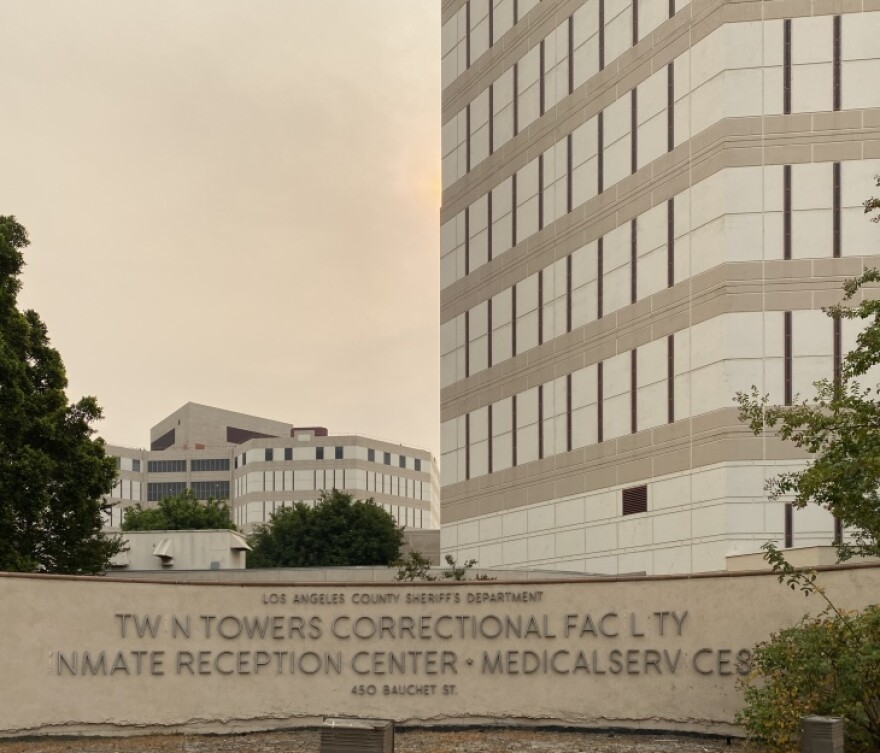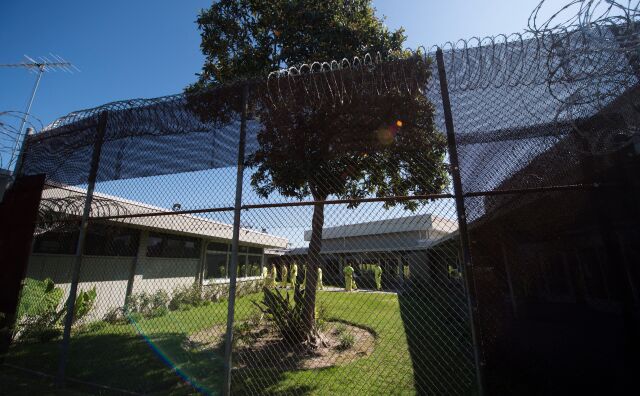How LA County Will Treat More People With Mental Illness Outside Of Jail

Our news is free on LAist. To make sure you get our coverage: Sign up for our daily newsletters. To support our non-profit public service journalism: Donate Now.
The L.A. County Supervisors voted unanimously Tuesday to approve a measure that will increase funding for a program that works to reduce the population of people with mental illness in county jails.
With the additional $34.7 million, the program will be able to serve 415 people, up from its current capacity of 215.
There are about 400 people in the jails who would be eligible for this program at any given time, and about 1,100 each year, according to ODR Medical Director Dr. Kristen Ochoa.
"This is fantastic, very welcome news," said Pamila Lew, senior attorney at Disability Rights California. "This is the group of individuals who are considered the most difficult to meet the needs for and they're the ones who have been left in jail," she said.
The Office of Diversion and Reentry's Felony Incompetent to Stand Trial program (FIST) diverts people who are too sick to participate in court proceedings into community settings, meaning residing in a home of about 20 people that provides mental health services and 24/7 security.
The program aims to make sure those individuals don't have to return to jail as their cases play out.
According to ODR, a person charged with a felony who's found incompetent to stand trial could be stuck in jail for as long as a year while waiting for a Department of State Hospitals bed to open up.
The boost for the FIST program comes at a time when L.A. County Jail's mental health population has reached more than 6,000, the highest it's ever been. That's happened even as the overall jail population was reduced to mitigate the spread of COVID-19.
"It is the largest in the country, the largest in the world, the largest population of people with serious mental disorders anywhere in one place," Ochoa told the Civilian Oversight Commission last week.
'AMAZING' TRANSFORMATIONS
"There's a little bit more involved in getting folks released from the jail if they have a serious mental illness," said ODR Director Peter Espinoza. "Releasing them in a way that they don't return to homelessness, it takes more resources, It takes more effort," he said.
Espinoza said people who have gone through the FIST program have experienced "amazing" transformations.
"These are people who were so sick they couldn't cooperate with their lawyers," he said. "They're now capable of sitting down in a meeting with county leaders to explain their histories and how they're doing today."
Advocacy groups, including the ACLU of Southern California, JusticeLA and Disability Rights California, are pushing the county to go even further with its jail diversion efforts for people with a mental illness. They want the county to participate in the 'Community Care Demonstration Project.'
Under that proposed pilot, the county would take over responsibility for all care of FIST individuals. Participation in the pilot would come with a much larger pot of money from the state, amounting to nearly $200 million in the first year.
According to Espinoza, the smaller pot of money supervisors agreed to accept Tuesday will move the county forward on another one of its goals: closing Men's Central Jail. Before that can happen, there will need to be a significant drop in the jail population, and he said the increased funds for FIST are "a move in that direction."
"We're at a jumping off point here in Los Angeles County," Espinoza said.
WE ANSWER YOUR QUESTIONS
-
In December 2020, Sadie and Eddie Martinez were falsely accused of attempted kidnapping by a white woman who had been shopping at a Michaels craft store at the same time as them. This is the story of Sadie's fight to clear their names and bring her accuser to justice.
-
An Orange County public defender has tallied 57 tainted criminal cases stemming from the county's informant scandal. New revelations of alleged misconduct could affect dozens more.
-
Ryan Clinkunbroomer was found in his patrol car near the Palmdale station. He was a third-generation sheriff's deputy.
-
L.A. County prosecutors say David Bloom scammed nine people out of nearly $250,000. Bloom, a twice-convicted con man known in the ‘80s as the “Wall Street Whiz Kid,” allegedly trolled for victims in a Hollywood apartment building and local bars.
-
Edward Bronstein died in March 2020 while officers were forcibly taking a blood sample after his detention.
-






